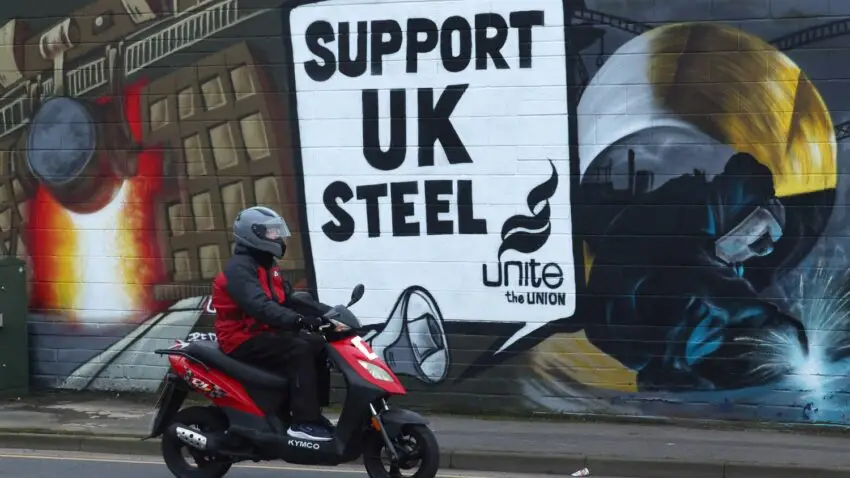The proposed strike at Tata Steel’s Port Talbot plant has been suspended. This follows high-level talks between union officials and company representatives.
Members of the Unite union were preparing for an indefinite strike starting 8th July. However, recent discussions have brought a temporary reprieve to the situation.
Background of the Dispute
The dispute arose over Tata’s plans to shut down its two blast furnaces by the end of September. This move is part of a government-funded initiative aiming to transition production to a less carbon-intensive electric arc furnace by 2027.
Safety Concerns and Early Shutdown Warnings
Tata, Britain’s largest steel producer, warned that the ongoing industrial action could force an earlier-than-planned shutdown at Port Talbot. The company cited safety concerns due to the prolonged strike.
Successful Negotiations
High-level talks over the weekend saw Tata agreeing to negotiate on future investments at the site. This was a significant shift from their previous focus on redundancies.
Union’s Victory
Sharon Graham, Unite’s general secretary, called this a crucial development for protecting jobs. She highlighted the importance of secure investment for the site’s future.
Government and Party Involvement
Tata had initially planned to invest £750 million to decarbonise its UK operations. However, Labour’s plans suggest a larger taxpayer investment to support the industry.
Rifts Among Unions
Alun Davies, national officer for Community, praised the decision to resume discussions with Tata. He noted the confirmation of talks on a potential memorandum of understanding through the multi-union steel committee.
Future Projections
This plan is expected to cost taxpayers more than the Conservative government’s proposal. Despite the larger cost, Labour believes it will safeguard jobs and maintain steelmaking capabilities.
The suspension of the strike at Tata Steel’s Port Talbot plant marks a significant win for union members. The talks have paved the way for future investments and the continued operation of the site in South Wales.
As negotiations continue, the future of steel production in the region looks promising. Both Tata and the unions are now focused on securing a stable and sustainable future for the industry.


